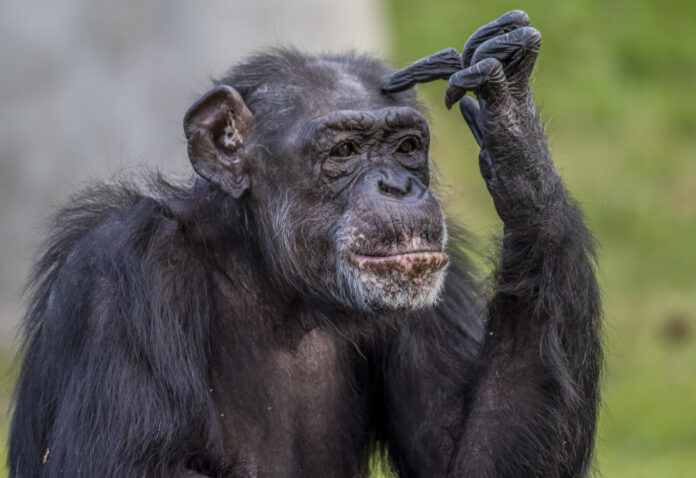A new study examines historical footage suggesting that chimpanzees have the potential to learn human words under specific conditions
In an intriguing discovery, a team of speech specialists and psychologists from Sweden, the UK, and Switzerland has uncovered evidence suggesting that chimpanzees may have the capability to speak human words. The findings, published in Scientific Reports, analyze old video footage of chimpanzees and reveal that at least three individuals had learned to utter human words in a rudimentary form.
The question of why humans are the only primates to develop sophisticated speech has long fascinated scientists. While some great apes have been observed using various vocalizations, there has been scant evidence to suggest that they use language in a manner akin to humans. This has led to a debate within the scientific community: is the difference rooted in the physical structure of the throat, the brain’s capabilities, or perhaps a combination of both?
A significant example in this debate involves a husband-and-wife team who, decades ago, raised a chimpanzee in their home. They attempted to teach the chimp to speak simple words like “mama” and “cup.” However, this work faced criticism over the years due to ethical concerns surrounding the chimp’s removal from its natural mother, which led to the dismissal of these early findings.
Undeterred, the new research team set out to revisit these claims by searching for historical video evidence of similar attempts. They discovered three notable videos that demonstrated chimpanzees speaking human words. One video, produced by the husband-and-wife team, showed a chimp repeating the word “papa” and the word “cup” several times. Another video, found on YouTube, featured a chimp named Johnny saying “mama,” and a third video from Italy captured another chimp doing the same.
The researchers acknowledge that the chimps’ pronunciation did not exactly match human speech but described their attempts as “essentially word-like.” This observation suggests that under the right conditions, great apes might be capable of rudimentary speech. The study’s authors propose that these findings indicate a potential for speech-like communication in chimpanzees, albeit at a primitive level.
Analysis:
Political: The implications of this study might influence discussions about animal rights and ethical treatment. If great apes are found to possess some degree of speech capability, it could strengthen arguments for more stringent regulations on their captivity and use in research. The potential for communication could lead to increased advocacy for better living conditions and ethical treatment of these animals.
Social: Socially, the discovery that chimpanzees might be capable of rudimentary speech challenges existing perceptions of animal intelligence and communication. It could spark public interest and debate about the cognitive abilities of non-human animals and their capacity for complex interactions. This newfound understanding might also influence the way society views and interacts with these primates.
Racial: The racial impact of this study is minimal, as it focuses primarily on the cognitive and communicative abilities of chimpanzees rather than human social or racial dynamics. However, the broader implications for understanding intelligence across species could subtly influence discussions about the nature of intelligence and communication in various contexts.
Gender: The gender impact of the study is also limited. The research’s implications are more centred around animal cognition and communication rather than issues related to gender. However, increased awareness of animal intelligence might contribute to broader discussions about gendered perspectives in scientific research and ethics.
Economic: Economically, the study could have implications for the fields of animal research and conservation. If the ability of chimpanzees to learn human words is further substantiated, it may lead to increased investment in studies related to animal cognition and communication. Additionally, it could affect the economics of animal research facilities, influencing funding and resource allocation for ethical treatment and communication studies.
